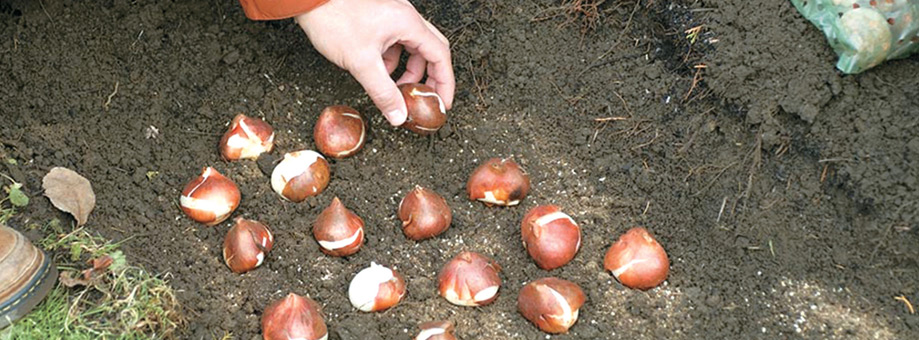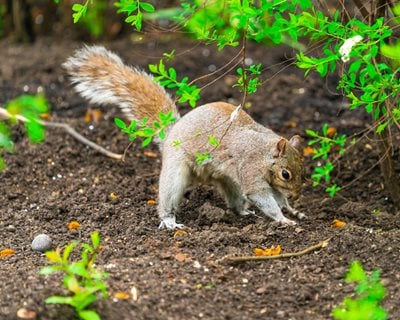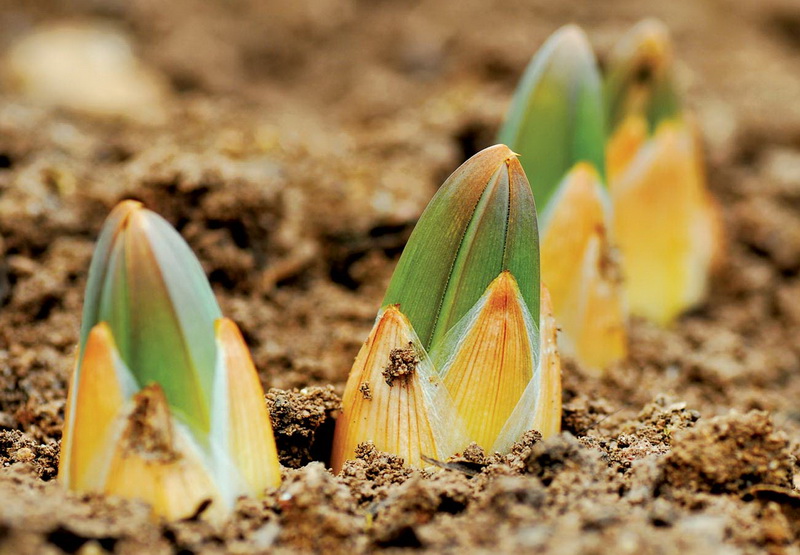The Frustration of Finding Dug-Up Bulbs
Discovering that your carefully planted bulbs have been dug up overnight can be a disheartening experience. The sight of scattered soil and broken petals can evoke feelings of frustration and disappointment. But before you can take action to prevent future damage, it’s essential to identify the nocturnal visitor responsible for the digging. Knowing what is digging up your bulbs at night is crucial to stopping the destruction. Whether you’re a seasoned gardener or a beginner, the mystery of the dug-up bulbs can be a challenging puzzle to solve. By understanding the motivations and habits of the common culprits, you can take the first step towards protecting your bulbs and preserving the beauty of your garden.
Common Suspects: Animals That Might Be Digging Up Your Bulbs
When it comes to identifying the culprit behind dug-up bulbs, there are several common suspects to consider. Raccoons, squirrels, and moles are often the prime suspects in these cases. Raccoons, with their dexterous hands and curious nature, are known to dig up bulbs in search of food. Squirrels, on the other hand, are notorious for their love of bulbs and may dig them up to store for later. Moles, with their underground tunnels, may inadvertently dig up bulbs while creating their networks. By understanding the habits and habitats of these common culprits, gardeners can take the first step towards protecting their bulbs from damage. Whether it’s what is digging up your bulbs at night or during the day, identifying the animal responsible is crucial to preventing future damage.
How to Identify the Culprit: Clues to Look For
Identifying the animal responsible for digging up bulbs is crucial to preventing future damage. To solve the mystery, gardeners need to look for clues that can reveal the identity of the nocturnal visitor. One of the most obvious signs is the digging itself. Look for holes or disturbed soil around the affected bulbs. The size and shape of the holes can provide valuable information about the culprit. For instance, raccoons tend to dig larger holes, while squirrels and moles create smaller ones. Tracks and scat can also provide important clues. Raccoons leave behind distinctive hand-like prints, while squirrels have smaller, more delicate tracks. Moles, on the other hand, create tunnels and mounds of soil. Observing the garden at night can also help identify the culprit, as it may be possible to catch a glimpse of what is digging up your bulbs at night. By paying attention to these signs and clues, gardeners can take the first step towards protecting their bulbs from damage.
Raccoons: The Masked Bandits of the Garden
Raccoons are common culprits when it comes to digging up bulbs. These masked bandits are attracted to the tender shoots and sweet flavors of bulbs, making them a prime target for their nocturnal foraging. Raccoons are intelligent and dexterous, with nimble hands that allow them to dig and manipulate objects with ease. They are also opportunistic omnivores, which means they will eat almost anything they can find, including bulbs. Raccoons are typically found in urban and suburban areas, where they can thrive in close proximity to human settlements. They are most active at night, which is why it’s often difficult to catch them in the act of digging up bulbs. However, their distinctive hand-like tracks and scat can provide valuable clues for gardeners trying to identify what is digging up their bulbs at night. By understanding the behavior and habits of raccoons, gardeners can take steps to protect their bulbs from these masked bandits.
Squirrels: The Bushy-Tailed Thieves of the Garden
Squirrels are another common culprit when it comes to digging up bulbs. These bushy-tailed thieves are notorious for their love of nuts, seeds, and fruits, but they also have a sweet tooth for bulbs. Squirrels are agile and quick, with sharp teeth and claws that allow them to dig and manipulate objects with ease. They are typically found in urban and suburban areas, where they can thrive in close proximity to human settlements. Squirrels are most active during the day, but they can also be active at night, especially when they’re searching for food. They tend to dig small holes, often in a scattered pattern, as they search for buried treasures. By understanding the behavior and habits of squirrels, gardeners can take steps to protect their bulbs from these bushy-tailed thieves. For example, gardeners can try using physical barriers, such as chicken wire or mesh, to prevent squirrels from accessing the bulbs. They can also try using repellents, such as predator urine or hot pepper spray, to deter squirrels from digging. By identifying what is digging up their bulbs at night, gardeners can take targeted action to prevent future damage and protect their precious bulbs.
Moles: The Underground Tunnelers
Moles are another possible culprit when it comes to digging up bulbs. These underground tunnelers are well-known for their ability to dig complex networks of tunnels and burrows in search of food. Moles are insectivores, feeding on earthworms, grubs, and other invertebrates, but they can also be attracted to bulbs, especially if they’re planted in areas with poor drainage or compacted soil. Moles are solitary animals, typically found in areas with moist, fertile soil, and they’re most active at night, which is why it’s often difficult to catch them in the act of digging up bulbs. However, their distinctive tunnels and mounds of dirt can provide valuable clues for gardeners trying to identify what is digging up their bulbs at night. By understanding the behavior and habits of moles, gardeners can take steps to protect their bulbs from these underground tunnelers. For example, gardeners can try using physical barriers, such as hardware cloth or chicken wire, to prevent moles from accessing the bulbs. They can also try using repellents, such as castor oil or predator urine, to deter moles from digging. By identifying the culprit and taking preventative measures, gardeners can protect their precious bulbs from damage and ensure a beautiful, thriving garden.
Protecting Your Bulbs: Prevention and Deterrent Methods
Now that you’ve identified the culprit behind the dug-up bulbs, it’s time to take action to protect your garden. There are several methods to prevent and deter animals from digging up your bulbs. One effective approach is to use physical barriers, such as chicken wire or hardware cloth, to surround the bulbs. Bury the barrier 12-18 inches deep to prevent animals from digging underneath. Another option is to plant bulbs in containers or raised beds, making it more difficult for animals to access them. Repellents can also be an effective deterrent. Spray or sprinkle repellents, such as predator urine or hot pepper spray, around the bulbs to discourage animals from digging. Planting bulbs in areas with poor drainage or compacted soil can also attract animals, so make sure to choose well-draining soil and avoid compacting the soil around the bulbs. By understanding what is digging up your bulbs at night and taking preventative measures, you can protect your garden from damage and ensure a beautiful, thriving display of flowers. Additionally, consider planting bulbs that are less appealing to animals, such as daffodils or grape hyacinths, which are often left untouched. By combining these methods, you can create a garden that is both beautiful and resistant to animal damage.
Conclusion: Solving the Mystery of the Dug-Up Bulbs
By now, you should have a good understanding of the common culprits behind dug-up bulbs and the methods to identify and deter them. Remember, identifying what is digging up your bulbs at night is crucial to preventing future damage. Whether it’s raccoons, squirrels, or moles, each animal has its unique characteristics and habits that can help you determine the best course of action. By taking preventative measures, such as using physical barriers, repellents, and planting strategies, you can protect your bulbs and enjoy a beautiful, thriving garden. Don’t let mysterious garden visitors ruin your hard work and dedication. Take control of your garden and solve the mystery of the dug-up bulbs. Share your own experiences and solutions with others, and together, we can create a community of gardeners who are equipped to handle any challenge that comes their way. With persistence and the right strategies, you can keep your bulbs safe and enjoy the fruits of your labor.









